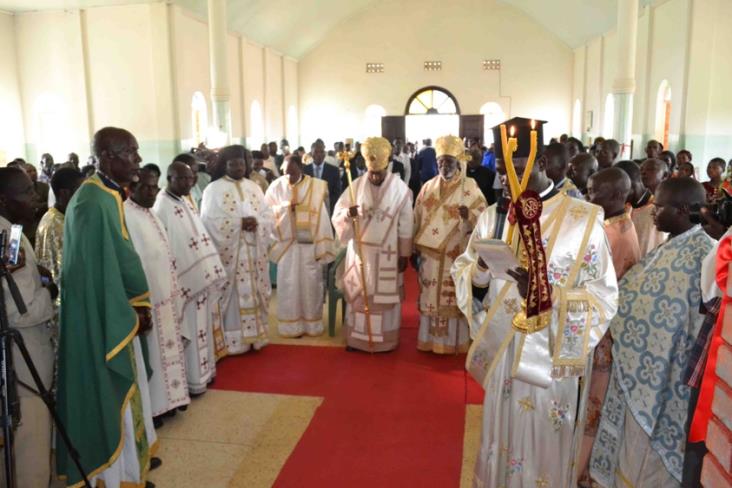
With dioceses covering the African continent, the Greek Orthodox Patriarchate of Alexandria is increasingly ministering outside of Egypt, primarily to people with African roots who have felt attracted to the Orthodox faith and may come to add a new dimension to the church, writes Ciprian Burlacioiu (Ludwig-Maximilians University) in Religion & Gesellschaft in Ost und West (October). Originally, most Orthodox members following the Byzantine tradition in Africa were people of Greek descent, residents of Egypt or twentieth-century settlers in various sub-Saharan countries. But the Greek diaspora in Africa declined as a consequence of political turmoil and decolonization in the 1950s and 1960s. There are today some 100,000 Greeks or people of Greek descent living across all of Africa (primarily in Egypt, Ethiopia, Congo, Nigeria, South Africa, Sudan, and Zimbabwe). Financial and other forms of support coming from Greece and Cyprus have become crucial for the Patriarchate. However, Byzantine Orthodoxy is expanding these days among other groups of faithful. Alongside a few Arabic-speaking parishes as well as Eastern European Orthodox residents in African countries, most of these members are indigenous African people who joined the church (and there have been similar trends toward the Coptic Orthodox Church, although this is not discussed in Burlacioiu’s article). Interestingly, this has been to a significant extent the result of autonomous decisions—what Burlacioiu labels “self-mission.” The prototype was a group of Christians in Uganda who left the Anglican Church in the 1930s and self-identified as Orthodox, first coming into contact with the (independent) African Orthodox Church (based in the U.S. and South Africa), and later received by the Patriarchate of Alexandria.
While the integration of such groups has not always proceeded without tensions and sometimes splintering, there are now indigenous parishes in a number of African countries. Most of the 35 bishops of the Patriarchate are still Greeks, but five are indigenous Africans, as are most of the clergy outside of large cities. Indeed, most of the expansion has been taking place in the countryside. Five additional dioceses were created in various parts of sub-Saharan Africa in 2018 to take pastoral care of this growing Orthodox flock. The Byzantine Liturgy has already been translated into a number of local African languages and plays a missionary role. Greek support for this mission is important, mainly through its missionary agency Apostoliki Diakonia, which brings qualified candidates for the priesthood to Greece for study and offers other financial assistance. Some Greek monks are supported by their monasteries or by the faithful to spread the Orthodox faith in Africa. What remains to be seen is how this new Orthodox population will develop from a Greek Orthodox into an African Orthodox church. According to Burlacioiu, although the Orthodox faith has also attracted converts in other places in the world (as in Asia), nowhere has it met with the success it has in Africa, raising the possibility of an African enculturation of Greek Orthodoxy in the future, including in the theological field.
(Religion & Gesellschaft in Ost und West, Institut G2W, Birmensdorferstrasse 52, P.O. Box 9329, 8036 Zurich, Switzerland – https://www.g2w.eu/)
